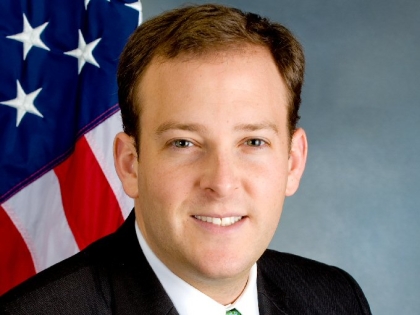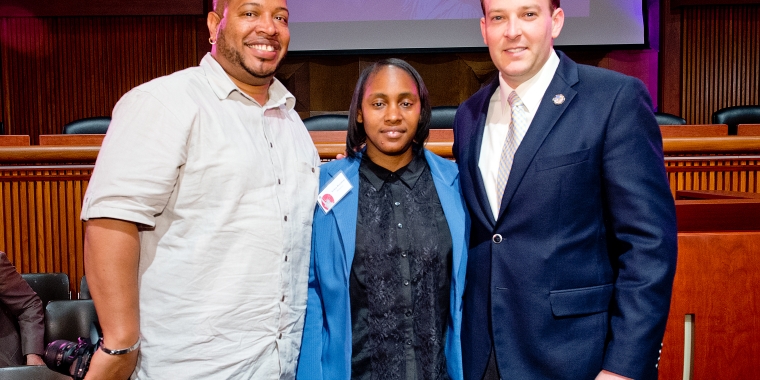
Senate Gives Final Legislative Approval to Bills Limiting Military Funeral Protests
Lee M. Zeldin
June 16, 2011
-
ISSUE:
- Military Affairs
- Military
- Troops
- Veterans
The New York State Senate today gave final legislative approval to two measures that offer additional buffers and restrictions for protests or demonstrations seeking to disrupt military funerals, burials or memorial services. The bills, sponsored by Senators Lee Zeldin (R-C-I, Shirley) and Joseph Griffo (R-C, Rome), balance the constitutional right of free speech with the ability of families to respectfully mourn the individuals who gave their lives in service to our country.
“I am proud of the bi-partisan work of my colleagues in making this initiative a reality,” said Senator Zeldin. “This very important legislation protects our future Gold Star families by ensuring dignity, respect and honor for our fallen military veterans. This legislation takes into consideration the free speech rights of those who choose to protest military funerals with hateful rhetoric and tactics. We must balance that right with the need to protect our gold star families and allow them to peacefully mourn the loss of their military hero and loved one. I am pleased to announce the passage of these bills and I respectfully request Governor Cuomo’s swift action in signing this into law.”
“Exercising free speech is an American right, but it is a tremendous misuse of that freedom to use the funerals of our veterans as a vehicle for protests that do nothing but add to the grief and sorrow of military families,” said Senator Griffo. “Grieving military families shouldn’t be the target of a political demonstration.”
“The grieving families of the men and women who have died in the line of duty have already made a tremendous sacrifice,” Senate Majority Leader Dean G. Skelos said. “Those who seek to cause additional distress through disruptive protests is dismaying, but legal. These bills provide sensible restrictions and protections to help families and friends honor our state’s fallen heroes.”
“Freedom of speech is one thing. Disgusting disregard for the honor and dignity of the fallen is an entirely different story," said Senator Greg Ball (R-C, Pawling), who is the Chairman of the Veterans, Homeland Security and Military Affairs Committee. “We have legislation and regulations, that pass constitutional muster, on the books already for public safety at parades and demonstrations, this is no different.
“These protests are appalling, and they’re wrong,” said Senator Tom O’Mara (R-C, Big Flats), noting news reports this week of a possible protest in his legislative district on Saturday at the funeral of U.S. Army Sgt. Devin A. Snyder, who was killed in Afghanistan on June 4. “The family and friends of Devin Snyder deserve to mourn her passing and honor her service with all of the decency, respect, sensitivity and solemnity that Devin earned and deserves. The same holds true for the families of all our fallen servicemen and servicewomen.”
A recent U.S. Supreme Court decision recognized that persons who protest at funerals of military personnel have constitutional rights, but also that states have a compelling interest in protecting the family and friends of deceased military personnel while they are mourning at such events. This prompted Senator Zeldin to propose the Specialist Thomas J. Wilwerth Military Dignity Act this past March. Specialist Wilwerth was an Iraq War Veteran who lost his life in combat in 2006.
Senator Griffo introduced a companion bill designed to ensure that military families already reeling from grief are not faced with insults and protests, and both bills were passed by the Senate on March 14, 2011. The bills were amended and passed the Assembly on June 6, 2011.
The bill sponsored by Senator Zeldin (S.3901A) requires the development and implementation of a permit process for demonstrations at veteran and veteran family member funerals, and authorizes the imposition of fines for failure to comply with the permit provisions.
The bill sponsored by Senator Griffo (S.5605) triples the buffer zone distance for protests around a religious service, funeral, burial or memorial service from 100 feet to 300 feet.
The bills will be sent to the Governor.
Share this Article or Press Release
Newsroom
Go to NewsroomErica Boynton
May 13, 2013

